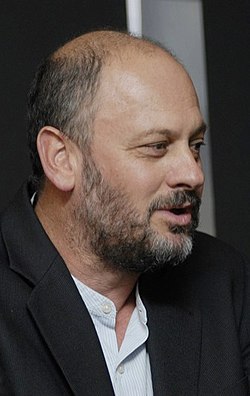Tim Flannery Quote
We are often appalled at the tragic prevalence of wildlife poaching in Africa, where only a resolute if underfunded band of park guards works to prevent the total elimination of rhino and elephant.* But 70 years ago things were even more desperate in Europe, for Europe had lost its megafauna, and even its wisent had been driven into extinction in the wild. Its largest surviving wild creatures were antelope-sized, and even some of them were being exterminated by the most determined poaching. The lessons of history should make the world more helpful to the dozens of unsung African Renzo Videsotts working today. With a little help, they may succeed in conserving some of Africa’s fauna.
We are often appalled at the tragic prevalence of wildlife poaching in Africa, where only a resolute if underfunded band of park guards works to prevent the total elimination of rhino and elephant.* But 70 years ago things were even more desperate in Europe, for Europe had lost its megafauna, and even its wisent had been driven into extinction in the wild. Its largest surviving wild creatures were antelope-sized, and even some of them were being exterminated by the most determined poaching. The lessons of history should make the world more helpful to the dozens of unsung African Renzo Videsotts working today. With a little help, they may succeed in conserving some of Africa’s fauna.
Related Quotes
About Tim Flannery
As a researcher, Flannery had roles at several universities and museums in Australia, specialising in fossil marsupials and mammal evolution. He made notable contributions to the palaeontology of Australia and New Guinea during the 1980s, including reviewing the evolution and fossil records of Phalangeridae and Macropodidae. While mammal curator at the Australian Museum, he undertook a survey of the mammals of Melanesia, where he identified 17 previously undescribed species. He has published widely on the systematics, zoogeography, and biochronology of the mammals of Australia and New Guinea.
He has since written many more books on natural history and environmental topics, including Throwim Way Leg and Chasing Kangaroos, and has appeared on television and in the media. He was awarded Australian of the Year in 2007 for his work and advocacy on environmental issues.
Flannery became prominent for his role in communication, research and advocacy around the issue, particularly in his native Australia. In 2011, he was appointed the Chief Commissioner of the Climate Commission, a federal government body providing information on climate change to the Australian public, until its abolition by the Abbott government in 2013. Flannery and other sacked commissioners later formed the independent Climate Council, which continues to communicate independent climate science to the Australian public. An environmentalist and conservationist, Flannery is a supporter of climate change mitigation, renewable energy transition, phasing out coal power, and rewilding.
